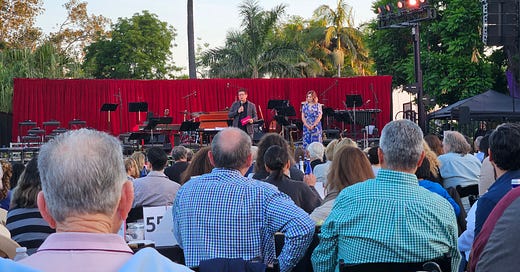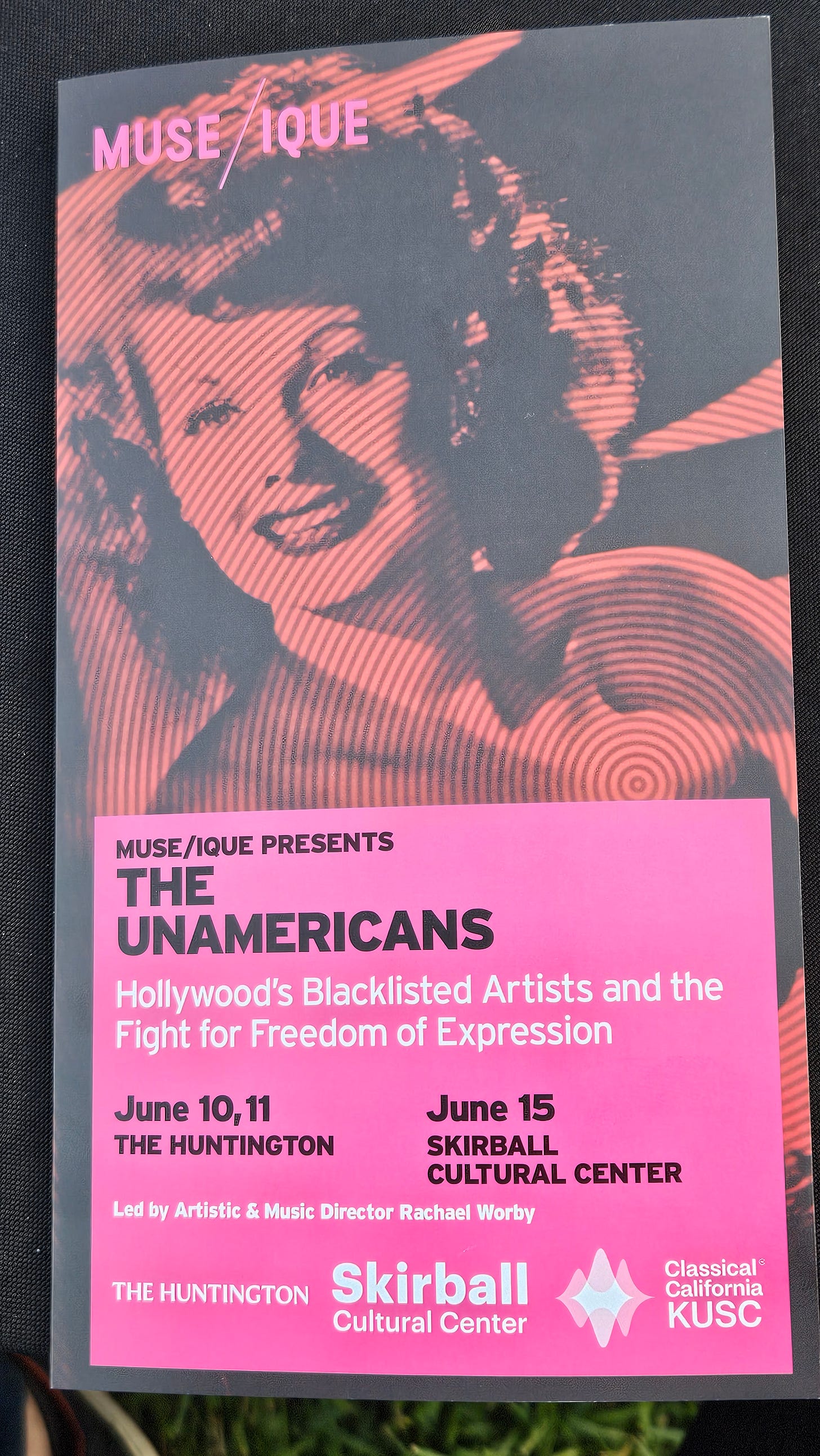As the new District Administrator of Visual and Performing Arts, I’ve been exploring partnerships to enrich our students' access to bold, boundary-breaking arts programming. That’s how I found myself strolling the perfectly manicured grounds of The Huntington on a cool June evening, the sky painted lavender, wild parakeets hollering overhead like feathered hype-men, and me—armed with curiosity, a notebook, and a jacket I probably didn’t need—about to experience my first MUSE/IQUE show.
And what a first it was.
The UnAmericans is not your average walk down memory lane. It's a high-voltage resurrection of artists who were brave enough to speak (or sing) their minds—and paid the price. Imagine a lineup where Lena Horne, Lucille Ball, Hazel Scott, Paul Robeson, and Gypsy Rose Lee all show up, demand a mic, and say, “We’ve got something to get off our chests.” Now add a powerhouse orchestra, vocals that could crack stone, and a conductor who’s part maestro, part social archaeologist—Rachael Worby—and you’re starting to get the idea.
Some highlights that stayed with me:
Lena Horne, who was told she was “too political” for the big screen. What was her crime? Supporting civil rights and refusing to perform for segregated audiences. MGM eventually canceled her contract, proving that in 1950s Hollywood, speaking up while Black was considered a special kind of subversion.
Hazel Scott, a prodigy and star of her own network TV show—until she had the nerve to testify before HUAC. Rather than naming names, she reminded Congress she was a pianist, not a snitch. Her career vanished faster than a subpoena.
Lucille Ball, the queen of TV comedy, was dragged before HUAC for registering Communist in the '30s—at her grandfather’s request. She gave the best response imaginable: she brought Desi Arnaz to testify on her behalf. Desi, in peak Desi form, said, “The only thing red about Lucy is her hair—and even that’s not real.”
And Gypsy Rose Lee, who peeled away more than satin gloves. She wrote biting political commentary, stood up to the blacklist, and was likely the only burlesque icon ever to be accused of intellectual subversion.
The night was brought to life through show-stopping performances by LaVance Colley, Angie Fisher, and the DC6 Singers Collective—each note was a protest, a plea, and a party all at once. Colley’s vocals could part the Red Sea; Fisher’s voice had the room breathing in sync. And the DC6 Singers? A vocal engine of resistance and harmony.
This wasn’t a nostalgia act—it was a reminder: expression is dangerous to those in power, and art will always be the last thing standing when truth is under attack.
As I plan our fall announcements and begin coordinating with MUSE/IQUE, I can already see the possibilities for our students. They won’t just be learning music—they’ll be learning courage, history, and how to hold a note and a principle at the same time.
So yes, I came to learn about the company. I left with a mission.
And maybe a few wild parakeets singing "We Shall Overcome" in the background.
P.S. Thanks to the Principal of Toll Middle School for introducing MUSE/IQUE to me 🙌🙏




